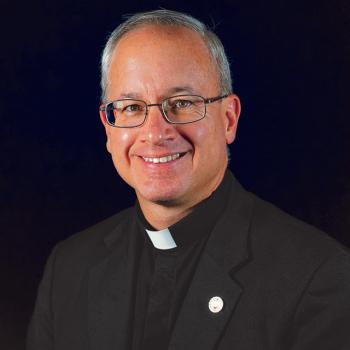And this, perhaps, is one of the lessons that future forms of Paganism might benefit from giving much more attention to. The plurality, as well as the success, of many ancient religions was in their particularity, not in their universality. Cultic action was directed toward specific divinities, not "the divine" in general. Moving from a discourse that speaks in terms of "the divine" instead of in specific, personal, and individual terms about specific, personal and individual deities, will make these niche religious situations far more effective and relevant to individual communities. There are doctors and other medical professionals who can be reached in most communities at any time, and this is important to know; but it's also important to have a relationship with an individual doctor who knows your health history and your own specific needs in order to get those needs met more fully. Calling "Doctor!" might get you some assistance in certain situations, but knowing the name and the number of a specific doctor will be more likely to turn up results. The same is true of the divine world. There has been too much emphasis on the unity of divinity, when there needs to be more emphasis on the plurality of divinities for future effective Pagan theologies to take root in niche religious contexts.
Paganism, as it generally does now and as it has most often done in the past, must remain open to people having ties to a variety of spiritual communities, disciplines, and practices. There is no necessity for any one niche to meet all the needs of all of its participants. This is not only unlikely as a possibility, but also most perilous in terms of its implications for abuse and coercion, and is a great recipe for creating petty dictatorships, cults of personality, and forced situations in which toeing a party line of belief becomes a requirement rather than an option.
These more specialized, localized, niche religious groups will ideally serve their constituent populations well, and have a deeply rooted and rooting effect in the spiritual lives of their members. They will be small, and with any luck will become known for doing their particular brand of religious practice quite well and distinctively, in ways that can be appreciated by the wider regional, national, and worldwide Pagan communities with which they may be in contact. Exemplary practice, both in ritual procedure as well as in ethical conduct amongst its members in daily life, will always be the most important criteria by which to evaluate the effectiveness of these groups.
Indeed, this sort of niche religious activity is going on even now within many movements of modern Paganism, from individual ADF Groves to local Hellenic fellowships to any number of Wiccan covens across the globe. These small, but not insular, groups have often been the norm for Paganism, and should continue to be.
In a world in which "bigger" means "better," where large populations are always portrayed as being "more right" and "normative" than small ones, and where the "megachurch" has been asserted as a model of religious (advertising!) success in a wider climate of flagging church attendance, Paganism should not be swayed by these common opinions or religious models in attempting to shape future Pagan practices and understandings of success. "Religious success" can only be measured by the overall quality of life (which does not necessarily equate to wealth and affluence!) of its members, and whether or not religion and religious activities are a joyful and enriching dimension to these qualities of life, rather than a guilt-inducing or burdensome chore or perceived requirement within them.
If one's own Paganism, consisting of an entirely unique and specific niche that is wholly "Here" in its implications, is also life-giving, ennobling, virtuous, and productive, then it needs to be nothing more than that for the individual. One practice done by one person well and fully is worth much more to the world than thirty-thousand people in an organization doing lukewarm work in a structure they did not create and in which they have neither personal spiritual investment nor deep identification.
P. Sufenas Virius Lupus is a founding member of the Ekklesía Antínoou (a queer, Graeco-Roman-Egyptian syncretist reconstructionist polytheist religious group dedicated to Antinous, the deified lover of the Roman Emperor Hadrian and other related gods and divine figures), a contributing member of Neos Alexandria, and a Celtic Reconstructionist Pagan. Lupus' work is published in the Bibliotheca Alexandrina volumes dedicated to Hekate, Isis and Serapis, and Artemis, with upcoming writings and poems in the devotionals to Zeus, Pan, and the Dioskouroi. He has published a book of poems, The Phillupic Hymns (2008), and also has poems printed in the Scarlet Imprint anthology Datura: An Anthology of Esoteric Poesis (2010).




